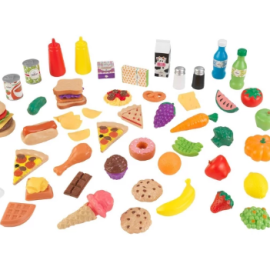The role of a parent is manifold. You’re a professional chef, storyteller, first-aid administrator, walking encyclopedia, butt wiper, launderer, chauffeur, itinerary planner, housekeeper, and entertainer. What you’re not is a mind reader. It’s not always possible to know how your child is feeling or what they need — and, let’s face it, kids aren’t always the greatest communicators.
Sometimes, it might feel like you’re misinterpreting all of their cues, and nothing you do seems to go the right way. Everything you say, even the most complimentary statement, goes in one ear and out the other. Your gifts are received unenthusiastically. Your hugs cause your youngest to recoil. The good news is that the issue likely isn’t your intention; you and your kid might speak different love languages.
Coined by author Dr. Gary Chapman, the five love languages outline different ways people commonly express and receive love: physical touch, quality time, receiving gifts, affirmation, and acts of service. As Chapman explains in his book, The Five Love Languages, knowing someone else’s love language can help them feel acknowledged and important, ultimately allowing for the relationship to deepen.
Though the concept was initially applied to romantic relationships, writer Nicole Black says tapping into her kids’ love languages is “one of the simplest and most powerful ways to connect with our kids in meaningful ways.”
Again, you’re not omnipotent. So, how are you supposed to know what your child’s love language is? All you need to do is look at their behavior, Black says.
“If your child needs lots of hugs and hand holding and wants to sit on your lap and leaves you no personal space, it’s probably physical touch,” she says. “If they give you lots of compliments and often tell you how pretty you look, it might be words of affirmation.”
Kids who like receiving gifts might give them more frequently, while kids who value quality time might ask you to read or play with them, Black explains. Meanwhile, those who value acts of service might offer to help with chores. (Why this isn’t a universal love language is a particularly cruel mystery.)
While child counselor Katie Lear says that “children’s love languages become apparent around the time that they develop language and can verbally express what they want,” babies can give clues too.
Balint Horvath, who runs the site Projectfather, says he’s found success using his “dominant” love languages — physical touch, words of affirmation, and quality time — with his 16-month-old daughter. “She loves tummy and foot rubs when changing diapers,” he says. “She likes receiving compliments for the good that she’s done … She enjoys it when I spend time with her in the playground.”
“By knowing these love languages, I gain a deeper understanding into my daughter and how to make her feel loved,” he adds.
Sometimes, though, your love languages won’t sync up, which can be a bit awkward at first, says child counselor Katie Lear.
“Understanding your child’s love language is especially helpful when a child’s temperament is different than your own,” she says. Lear adds that this understanding can also put “otherwise confusing behavior” in perspective: “For example, why your child seems clingy when you may be feeling touched out, or why one of your children seems to crave individual time more than his siblings.”
It can also help you make sense of some of their more frustrating habits. “Maybe your love language is acts of service, and you’ve been feeling particularly down about your child who constantly ‘forgets’ his one chore, but he’s always quick to tell you with his words how much he loves and appreciates you,” Lear says. “Noticing these other expressions of love can make the forgotten chore sting a little less and help you figure out how to make chores more of a priority in a more loving way.”
That last bit might be the key to creating — and sustaining — a relationship that benefits everyone. Because speaking someone’s love language isn’t just a way to appease them; it’s also meant to model healthy communication with others, in which all parties can feel safe to express their needs and wants.
And though it might be tough, speaking someone else’s love language isn’t something you can phone in; it’s an action that you have to commit to daily. It requires patience and empathy, two life skills that can significantly help your child in all future relationships. Like anything else in parenting, often, the best way to teach is to show — and not just when things are easy. Taking the time to connect with your kids in their preferred ways when life gets tough will help them feel “loved and cared for during stressful times,” Lear says.
“If possible, find a short and predictable time each day during which you can put down the phone and set aside any thoughts about your work-from-home job duties to interact with your child one-on-one,” she adds. “You don’t have to do anything particularly special or time-consuming: 15 minutes of Legos or dollhouse play or some time spent quietly drawing together is enough. If your child’s love language is physical touch, this could be a great time to cuddle up together or play a game of tag in the backyard. Let your child lead the play and set the agenda and follow her lead.”
Helping children feel safe and secure at home can, ultimately, help them feel more confident out in the world. The actions we take today, however small — a hug, one more bedtime story, or a handwritten note — can pave the way for a brighter future. And, boy, could we use some more kindness right now.
Before you go, check out some of the most heartfelt messages from celebrities to their kids.







Leave a Comment